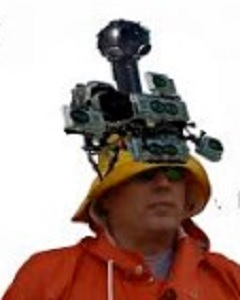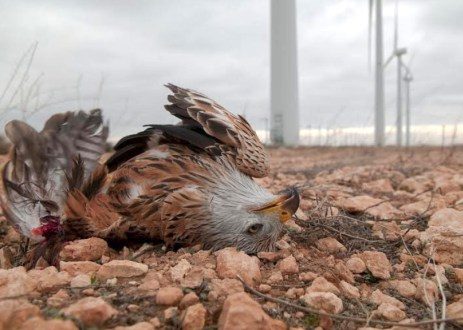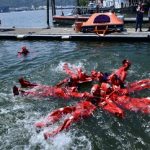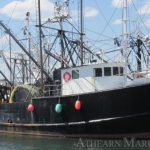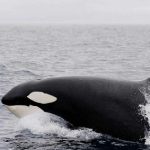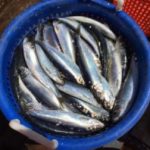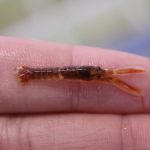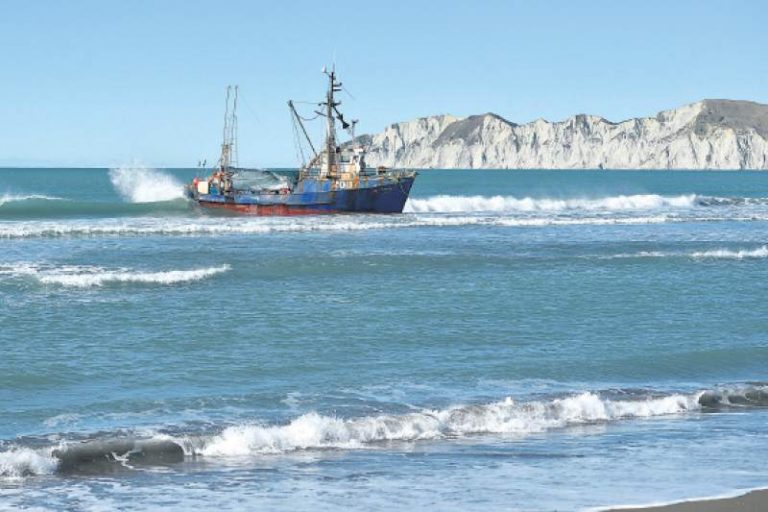Tag Archives: Greenpeace
Sealing the Future: Revive and promote the seal hunt, federal report recommends
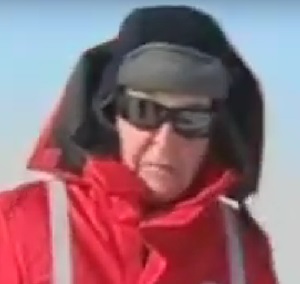 When Paul McCartney campaigned against the seal hunt in 2006, it was unclear how reliant the Inuit and some coastal community economies were on the trade. Three years later, the European Union banned all seal products. The market for seal products was decimated, and with it came the rise of poverty and suicide within Inuit communities despite exemptions for their products, Steven Lonsdale of the Qikiqtani Inuit Association told the Senate Committee on Fisheries and Oceans late last year. Now, a new report from that committee acknowledges the harm done by the ban and recommends Ottawa must do more to revive the struggling industry in what it has branded a call to action. more, >>CLICK TO READ 07:40
When Paul McCartney campaigned against the seal hunt in 2006, it was unclear how reliant the Inuit and some coastal community economies were on the trade. Three years later, the European Union banned all seal products. The market for seal products was decimated, and with it came the rise of poverty and suicide within Inuit communities despite exemptions for their products, Steven Lonsdale of the Qikiqtani Inuit Association told the Senate Committee on Fisheries and Oceans late last year. Now, a new report from that committee acknowledges the harm done by the ban and recommends Ottawa must do more to revive the struggling industry in what it has branded a call to action. more, >>CLICK TO READ 07:40
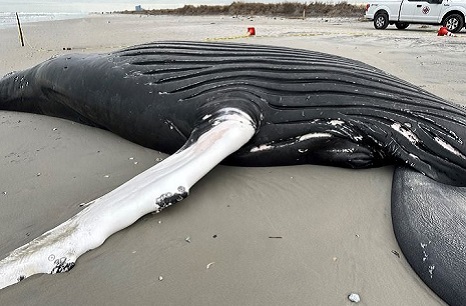
Green Groups Turn a Blind Eye to Mysterious Increase in Whale Deaths
Several environmentalist groups campaign against offshore oil and gas projects because of their ecological impacts, but those same groups appear to apply less scrutiny to the potential impacts of offshore wind developments. The Sierra Club, the League of Conservation Voters (LCV) and Greenpeace have all advocated for East Coast offshore wind projects amid the increase in whale deaths after slamming offshore oil and gas projects for their environmental impacts. The National Oceanic and Atmospheric Administration (NOAA) has declared “unusual mortality events” for humpback and North Atlantic right whales since 2016 and 2017, respectively, a timeline which generally coincides with the start of offshore wind development off of the East Coast in 2016, according to NOAA’s website. >>click to read<< 12:09
Fisheries plan ignores anti-bottom trawling protest
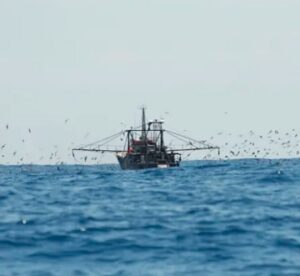 Greenpeace oceans campaigner Ellie Hooper says the new plan does nothing meaningful to address destruction of the seabed. “We see this plan as a missed opportunity to protect the ocean from the ravages of bottom trawling and truly transform commercial fishing in Aotearoa.” The draft plan, released in April, was blasted as ‘all carrot no stick’. Not so, says the Government. Announcing the final plan, Minister for Oceans Rachel Brooking said it struck a balance between looking after the ocean and making sure New Zealand had a sustainable seafood sector that can cope with the impacts of climate change. For example, the transformation plan looks at ways the industry can earn more and create more jobs without catching more fish, by utilising the whole catch in nutraceuticals and other novel uses. It also suggests the creation, incentivisation and adoption of new technology means restrictions on bottom trawling aren’t needed. >click to read< 18:17
Greenpeace oceans campaigner Ellie Hooper says the new plan does nothing meaningful to address destruction of the seabed. “We see this plan as a missed opportunity to protect the ocean from the ravages of bottom trawling and truly transform commercial fishing in Aotearoa.” The draft plan, released in April, was blasted as ‘all carrot no stick’. Not so, says the Government. Announcing the final plan, Minister for Oceans Rachel Brooking said it struck a balance between looking after the ocean and making sure New Zealand had a sustainable seafood sector that can cope with the impacts of climate change. For example, the transformation plan looks at ways the industry can earn more and create more jobs without catching more fish, by utilising the whole catch in nutraceuticals and other novel uses. It also suggests the creation, incentivisation and adoption of new technology means restrictions on bottom trawling aren’t needed. >click to read< 18:17
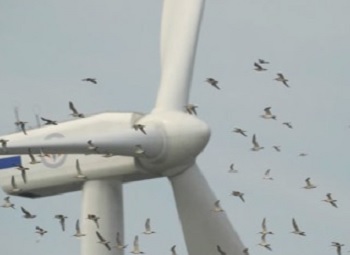
Global Wind Day, Environmental Nightmare
June 15 was Global Wind Day. Its European industry sponsors hope to promote the “power and possibilities” of wind turbines. But beware the Ides of June. Wind turbines have been sold to us as a means of reducing emissions, global warming and climate change. Although there are a lot of wind turbines installed around the world with many more seemingly to come, they have not reduced emissions, warming or climate change. And they offer no chance to do so, even if those things were desirable. Coming eight days short of the 35th anniversary of James Hansen’s Senate testimony that sent the world into global warming panic, it’s clear to anyone who cares to look that emissions have nothing to do with recent warming. >click to read< 08:55
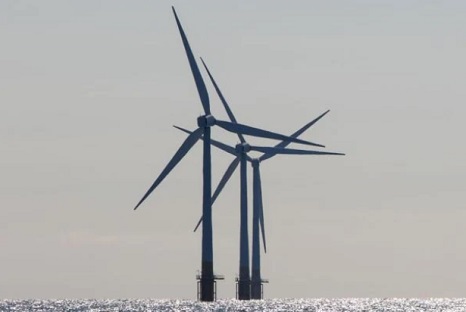
The New Green Activists Would Rather Save The Windmills Than Save The Whales
Save the whales. Once upon a time, that used to be the favorite mantra of environmental activists. Today, not so much. These days, it’s more chic to be into giant offshore wind turbines. And if dozens upon dozens of whales must be killed to make way for turbines along with their new mantra, “save the planet,” well, that’s just the price we must pay. Or so goes the current thinking among the green set. Scores of whale and dolphin carcasses have washed up along the East Coast in recent months, and particularly on New Jersey and New York-area beaches where no fewer than nine whales have washed ashore just since December. The evidence is not yet incontrovertible, but the deaths coincide with sonic testing in conjunction with massive wind turbine projects. >click to read< 08:28
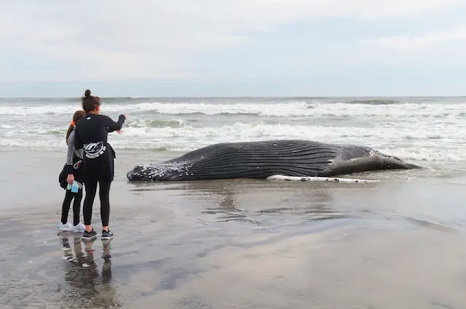
‘License To Kill’ Whales, Dolphins Handed to Offshore Wind Power Companies in Biden’s Green Energy Push
Greenpeace launched its “Save the Whales” campaign on April 27, 1975. But in the ensuing years, Greenpeace has gone full Orwell. Greenpeace is no longer interested in saving the whales. It may actually be aiding and abetting the Biden administration and the offshore wind industry in killing whales supposedly to “save the planet.” The deaths are coincident, however, with an increase in activity by the offshore wind industry as it surveys locations to erect its turbines. As it turns out, the federal agency has actually issued permits to the offshore wind industry to kill whales, dolphins and even seals. And not just one or two members of the species. >click to read< 09:11
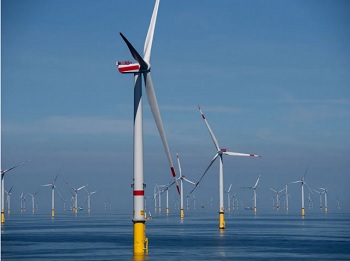
Whale deaths exploited in ‘cynical disinformation’ push against wind power, advocates say
Efforts to stop wind turbines off the Atlantic coast have a new mascot: the whale. A dozen New Jersey beach town mayors and several other groups now argue offshore wind power activity could be the cause of recent whale deaths and wind projects must be stopped while scientists investigate. But those most vocal about their concern have been silent in recent years as whale strandings surged along the East Coast. Wind energy supporters and whale advocates say these groups and politicians appear to be using whales as pawns. >click to read< 10:17

A new push to stop NJ offshore wind development
As debate continues over what is causing so many dead whales to wash ashore along the New Jersey and New York coastline, New Jersey Congressman Chris Smith, R-4th District, has introduced legislation requiring what he terms “an immediate, comprehensive investigation” into the environmental approval process for offshore wind projects. Meanwhile, New Jersey Rep. Jeff Van Drew, R-2nd District, announced on Friday in a statement that he will be holding a hearing on March 16 regarding offshore wind projects. The time and location were not available at the time of his announcement. >click to read< 16:19
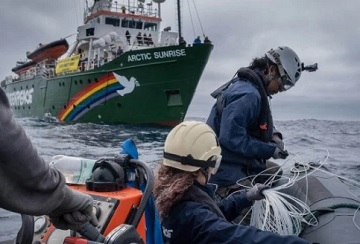
Greenpeace Seizes (Steals) Longline Fishing Gear to Highlight Threat to Sharks
Greenpeace is warning of the effects of industrial longline fishing on shark populations after its activists confiscated fishing gear from two vessels in the North Atlantic, one of which was operating in a Marine Protected Area. The NGO announced that its activists aboard the Arctic Sunrise operating in the North Atlantic waters confiscated 30 kilometers of industrial fishing gear and 286 hooks from two European industrial longline fishing vessels, Segundo Ribeland Siempre Perla. The longliner vessels from Spain were fishing for sharks and swordfish. >click to read< 11:18
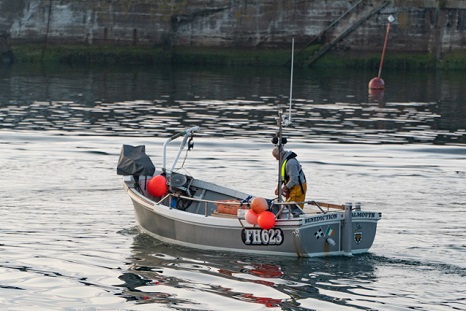
Who wants the disappearance of fishermen? The answers are here.
In recent months, worrying signs have multiplied indicating a desire, sometimes obvious, to make fishermen disappear or, very often, to marginalise them to make way for more lucrative activities in the Blue Economy.,, We are witnessing at sea, with the stranglehold of environmental NGOs on MPAs, the same phenomenon denounced by the historian Guillaume Blanc, in his book “Green Colonialism“: the grabbing of land in Africa, This is the case with the evolution of the marine world towards a “Blue colonialism” which is shamelessly displayed, multiplying MPAs prohibited to fishing, a subsistence and eminently sustainable practice of many oceanic peoples, and which, in Europe and elsewhere , only rarely involves small-scale fishermen in decisions about the oceans, of which they are nevertheless secular managers. >click to read< 07:52

The Politics of Division
It is not that difficult to exploit divisions in the fishing industry. We are a complex, multi-faceted, diverse industry, targeting a wide range of different species. We operate inshore and offshore with a bewildering range of gears, fishing from different ports, in vessel sizes that range from under 8 metres to over 100 metres.,, Enter Greenpeace. There are and always will be in our industry the gullible or the cynical who can see advantage in associating with the playground bully. Not for them concerns for the livelihoods or lives of other fishermen. They are prepared to line up with a criminal body which endangers the lives of other fishermen by dumping boulders on fishing grounds. That, for them, is an OK thing to do. >click to read< 10:16
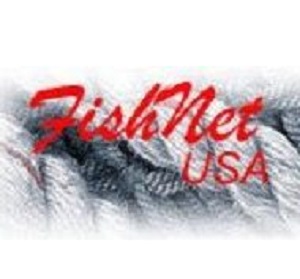
Wind farms: Where are all of the ocean saviors?
The precautionary principle has deep roots finding expression in sayings such as ‘an ounce of prevention is worth a pound of cure’ or ‘better safe than sorry’. The use of the precautionary principle in ecosystem management is especially important,,, Repeated failures of management highlighted by the collapse of northern cod off Canada, the California sardine fishery, and herring, sandeels, blue whiting and capelin stocks in the North Sea have demonstrated the need for this approach in order to help address scientific uncertainty. Yet when it comes to protecting huge swaths of ocean,,, Clog  our near shore and offshore waters with hulking (approaching 1,000 feet tall today, who knows what’s in store for tomorrow?) structures supporting huge rotors with tips moving through the air at velocities approaching 200 miles per hour? So what? Festoon our sea beds with electrical cables carrying huge amounts of electricity, And what of undersea server farms,,, >click to read< 15:43 Nils E. Stolpe/FishNet USA. © 2021 Nils E. Stolpe, July 31
our near shore and offshore waters with hulking (approaching 1,000 feet tall today, who knows what’s in store for tomorrow?) structures supporting huge rotors with tips moving through the air at velocities approaching 200 miles per hour? So what? Festoon our sea beds with electrical cables carrying huge amounts of electricity, And what of undersea server farms,,, >click to read< 15:43 Nils E. Stolpe/FishNet USA. © 2021 Nils E. Stolpe, July 31
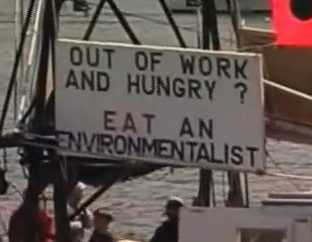
Angry North Sea fishermen dump rocks in front to Greenpeace headquarters
“Fishermen bring back dumped stones,” “dumped stones deadly to fishermen,” and “Greenpeace illegally dumps stones in the sea,” were read on banners and posters hanging on the windows of the Greenpeace headquarters in Amsterdam. In addition to the posters, about twenty to thirty stones were dumped in front of the building. It seems to be a reaction of angry North Sea fishers to Greenpeace. The activists of the environmental organization have, once again, thrown large natural stones into the North Sea. Greenpeace said it would invite the fishermen “for a cup of coffee,,, >click to read< 08:05

MPA Fishing Ban: Another Industry Sell-Out,,, For what? Big Wind, or Conservation?!!
The NFFO has hit back at the Marine Management Organisation’s announced intention to outlaw towed gears in the Dogger Bank SAC and the majority of three other offshore MPAs, describing the move as a ‘further sell-out of fishing’. Describing the announcement as a shocking development, ‘Not even lightweight seine nets are to be permitted,,, The proposals amount to a further sell-out of fishing. It augers ominously for other areas and for fishing communities in our increasingly crowded seas.’ Many will now be asking what has changed. They will also be asking how the government can permit the development of four of the largest wind farms in the world on the same site but take such a sledgehammer to fishing. >click to read< 14:47

Bottom trawling ban for key UK fishing sites
The Marine Management Organisation says it plans to safeguard fishing areas in Dogger Bank and South Dorset by completely banning bottom trawling. The sites are already designated as protected areas,,, Greenpeace recently dropped concrete blocks on to Dogger Bank. The MMO is consulting on proposed by-laws prohibiting bottom-towed gear on the sites. The consultation runs to 28 March 2021.,,, The NFFO described the proposals as having delivered “a sledgehammer to fishing”. “This punishing reversal comes on the back of the government’s failure to deliver on fishing in the Brexit negotiations, and damaging delays in the export of fish and shellfish. >click to read< 13:55
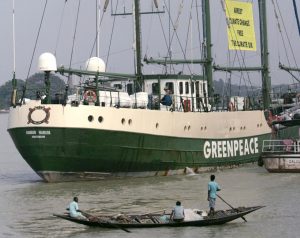
Greenpeace’s iconic “Rainbow Warrior” boat was disposed of in a way the group campaigned against for years.
Greenpeace quietly admitted in November one of its “Rainbow Warrior” boats was “scrapped on a beaching yard in Bangladesh” — a method it spent years campaigning against. “We have made a mistake, one that we have tried to correct,” Greenpeace International, based in Amsterdam, admitted in mid-November, adding it allowed Rainbow Warrior II “to be scrapped on a beaching yard in Bangladesh, in a way that does not live up to the standards we set ourselves and campaigned with our allies to have adopted across the world.” However, the embarrassing admission from one of the world’s largest and most prominent environmental groups flew under the radar of major news outlets. >click to read<15:09

A conversation with Patrick Moore
Patrick Moore is a Canadian activist, and former president of Greenpeace Canada. Since leaving Greenpeace, which he helped to found, Moore has criticized the environmental movement for what he sees as scare tactics and disinformation, saying that the environmental movement “abandoned science and logic in favor of emotion and sensationalism.” He has sharply and publicly differed with many policies of major environmental groups, including Greenpeace itself on other issues including forestry, biotechnology, aquaculture, and the use of chemicals for many applications. >click to read< 14:31
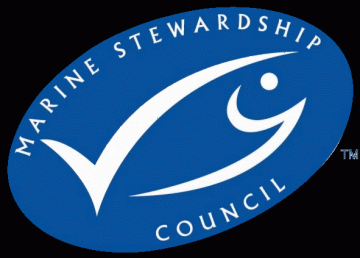
Marine Stewardship Council Under Scrutiny Over Bycatch
On Thursday, a coalition of environmental groups accused the world’s largest certification agency for sustainably sourced seafood of “allowing fisheries with widely unacceptable impacts to be certified.” The coalition, which included Greenpeace and the Environmental Justice Foundation, said that the Marine Stewardship Council (MSC) urgently needs to improve its Fisheries Standard, a document that specifies which fisheries may be deemed sustainable,,, >click here to read< 09:22
What Happened to the Armchair Environmentalists and Climate Alarmists When the Hurricanes Hit?
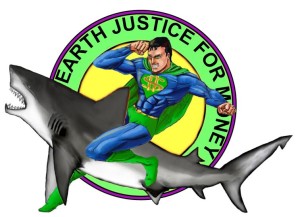 There are two ways to get ahead. Pull yourself up or push other people down. There are few better exponents of the pushdown option than the environmental groups and their supporters. They are, for the most part, urban guerrillas, useless people who do little or nothing except undermine the lives of others. They are the green bullies who tell others how to live, yet, hypocritically, live in similar lifestyles.,, Where was Greenpeace during the recent hurricanes?,,, I learned a great deal about these urban guerrillas over forty years of working with primary producers like farmers, foresters, and fishermen. No, I won’t be politically correct and call them fishers. Then, there’s the seal hunt! click here to read the story 11:14
There are two ways to get ahead. Pull yourself up or push other people down. There are few better exponents of the pushdown option than the environmental groups and their supporters. They are, for the most part, urban guerrillas, useless people who do little or nothing except undermine the lives of others. They are the green bullies who tell others how to live, yet, hypocritically, live in similar lifestyles.,, Where was Greenpeace during the recent hurricanes?,,, I learned a great deal about these urban guerrillas over forty years of working with primary producers like farmers, foresters, and fishermen. No, I won’t be politically correct and call them fishers. Then, there’s the seal hunt! click here to read the story 11:14
Leaked fishing camera report ‘sound’, top advisor said
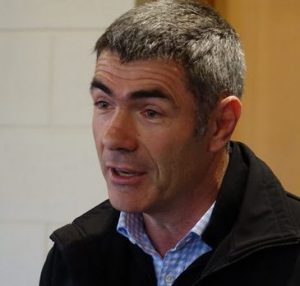 The report, carried out by the Ministry for Primary Industries (MPI), was leaked to Greenpeace in June. It raised doubts about whether camera technology on fishing boats would be much use in court as evidence of illegal fishing. MPI later called the report “misleading” and poor quality, and Mr Guy said scientists had binned it. But in emails released to the Green Party under the Official Information Act, a top science advisor described the report as “robust and sound”. The camera technology will be rolled out on all boats from October 2018. The minister’s spokesperson said they could be used to spot some fishing offences, and would have a strong deterrent effect. click here to read the story 11:09
The report, carried out by the Ministry for Primary Industries (MPI), was leaked to Greenpeace in June. It raised doubts about whether camera technology on fishing boats would be much use in court as evidence of illegal fishing. MPI later called the report “misleading” and poor quality, and Mr Guy said scientists had binned it. But in emails released to the Green Party under the Official Information Act, a top science advisor described the report as “robust and sound”. The camera technology will be rolled out on all boats from October 2018. The minister’s spokesperson said they could be used to spot some fishing offences, and would have a strong deterrent effect. click here to read the story 11:09
American Backlash Against Big Wind: States Cut Subsidies & Ban New Wind Power Projects
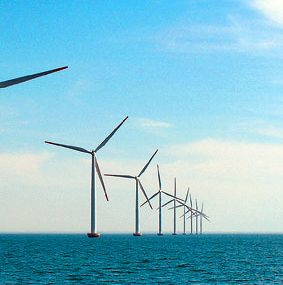 If your understanding of the world is limited to what’s printed in the mainstream press, you’d be forgiven for thinking that rural folk can’t wait to nuzzle up to 300 tonne Vestas, with 70m blades towering 180m above them.,, To be sure, you won’t read about this in the New York Times.,, The backlash is happening offshore, too. In New York, the Long Island Commercial Fishing Association and a boatload of fishermen and fishmongers have filed a federal lawsuit to prevent a wind project from being built on top of one of best squid and scallop fisheries on the Eastern Seaboard.,, As Bonnie Brady, the fiery executive director of the Long Island Commercial Fishing Association told me recently, “Destroying one environment in the name of trying to protect another environment makes no sense at all.” click here to read the story 08:53
If your understanding of the world is limited to what’s printed in the mainstream press, you’d be forgiven for thinking that rural folk can’t wait to nuzzle up to 300 tonne Vestas, with 70m blades towering 180m above them.,, To be sure, you won’t read about this in the New York Times.,, The backlash is happening offshore, too. In New York, the Long Island Commercial Fishing Association and a boatload of fishermen and fishmongers have filed a federal lawsuit to prevent a wind project from being built on top of one of best squid and scallop fisheries on the Eastern Seaboard.,, As Bonnie Brady, the fiery executive director of the Long Island Commercial Fishing Association told me recently, “Destroying one environment in the name of trying to protect another environment makes no sense at all.” click here to read the story 08:53
Rural America Keeps Rejecting Big Wind
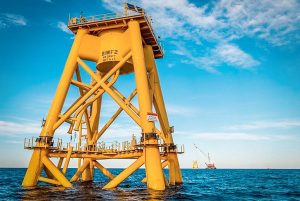 The backlash against Big Wind continues. Indeed, entire states are now restricting or rejecting wind projects.,,, The backlash is so fierce that Big Wind has begun suing small towns to force them to accept wind projects. Since last October, NextEra Energy, the world’s biggest producer of wind energy, has filed lawsuits in federal and state courts against five rural governments, including the town of Hinton, Oklahoma, population: 3,000. NextEra is funding its courthouse mugging of small-town America with your tax dollars.,,, The backlash is happening offshore, too. In New York, the Long Island Commercial Fishing Association and a boatload of fishermen and fishmongers have filed a federal lawsuit to prevent a wind project from being built on top of one of best squid and scallop fisheries on the Eastern Seaboard. click here to read the story 08:56
The backlash against Big Wind continues. Indeed, entire states are now restricting or rejecting wind projects.,,, The backlash is so fierce that Big Wind has begun suing small towns to force them to accept wind projects. Since last October, NextEra Energy, the world’s biggest producer of wind energy, has filed lawsuits in federal and state courts against five rural governments, including the town of Hinton, Oklahoma, population: 3,000. NextEra is funding its courthouse mugging of small-town America with your tax dollars.,,, The backlash is happening offshore, too. In New York, the Long Island Commercial Fishing Association and a boatload of fishermen and fishmongers have filed a federal lawsuit to prevent a wind project from being built on top of one of best squid and scallop fisheries on the Eastern Seaboard. click here to read the story 08:56
Greenpeace criticises fishing monitor’s connections with industry
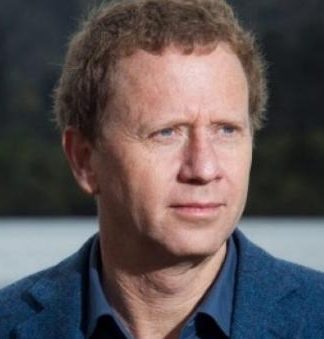 Environmental campaigners Greenpeace will take a complaint to the Auditor General after discovering the company responsible for monitoring large chunks of the fishing industry is wholly owned by the industry’s biggest lobby group. The company, named FishServe, has been contracted by the Ministry of Primary Industries (MPI) for the last 20 years to monitor overfishing, take catch reports, manage quotas and decide on licences. A Greenpeace investigation found the company is not only owned by the industry group Seafood New Zealand, but it operates from the same office and shares staff. The revelations follow a series of controversies last year about fish dumping going unprosecuted, and a contract for camera-monitoring also being given to an industry-owned company. continue reading the story here 09:26
Environmental campaigners Greenpeace will take a complaint to the Auditor General after discovering the company responsible for monitoring large chunks of the fishing industry is wholly owned by the industry’s biggest lobby group. The company, named FishServe, has been contracted by the Ministry of Primary Industries (MPI) for the last 20 years to monitor overfishing, take catch reports, manage quotas and decide on licences. A Greenpeace investigation found the company is not only owned by the industry group Seafood New Zealand, but it operates from the same office and shares staff. The revelations follow a series of controversies last year about fish dumping going unprosecuted, and a contract for camera-monitoring also being given to an industry-owned company. continue reading the story here 09:26
At Last, Greenpeace Admits to ‘Rhetorical Hyperbole’
 A few years ago Greenpeace and allied groups chose my company, Resolute, Canada’s largest forest-products company, to be their next victim. They compiled a litany of outlandish assertions: We were “forest destroyers,” for example, aggravating climate change, and causing a “caribou death spiral and extinction” in Canada’s boreal habitat. Greenpeace harassed companies we do business with, threatening them with the same sort of smear campaign that they launched against us and even instigating cyber-attacks on their websites. And they bragged about the damage — $100 million, in Canadian dollars — that they claimed to have inflicted on our business. They were lying about our forestry practices, so we did something that none of the group’s other targets have yet found the wherewithal to do: We sued them, in Canada, for defamation and intentional interference with economic relations, and in the United States under RICO statutes. A funny thing happened when Greenpeace and allies were forced to account for their claims in court. continue reading the article here 18:35
A few years ago Greenpeace and allied groups chose my company, Resolute, Canada’s largest forest-products company, to be their next victim. They compiled a litany of outlandish assertions: We were “forest destroyers,” for example, aggravating climate change, and causing a “caribou death spiral and extinction” in Canada’s boreal habitat. Greenpeace harassed companies we do business with, threatening them with the same sort of smear campaign that they launched against us and even instigating cyber-attacks on their websites. And they bragged about the damage — $100 million, in Canadian dollars — that they claimed to have inflicted on our business. They were lying about our forestry practices, so we did something that none of the group’s other targets have yet found the wherewithal to do: We sued them, in Canada, for defamation and intentional interference with economic relations, and in the United States under RICO statutes. A funny thing happened when Greenpeace and allies were forced to account for their claims in court. continue reading the article here 18:35
Greenpeace Criticizes Contracting Onboard Monitoring Cameras and Analysis to Trident
 Should a commercial fishing company be made responsible for monitoring what goes on board the commercial fishing vessels? Greenpeace leader Russel Norman says, it is like “the fox guarding the henhouses”. Greenpeace has criticized Ministry for Primary Industries for rolling out cameras on fishing vessel which is supplied as well as monitored by Trident for the fishing industry. The company is owned by Sanford and thirteen other seafood and fishing companies in New Zealand. The news was confirmed by Nathan Guy, the minister for MPI. So it is clear that indeed the fishing industry is responsible for analyzing the video surveillance that comes from its own trawlers and reports any suspicious behavior to the regulators. Executive Director of Greenpeace New Zealand, Russel Norman says that makes things worse as the government has given out the contract and analyzing task to the industry with Nathan Guy and Prime Minister John Key defending it. link 11:17
Should a commercial fishing company be made responsible for monitoring what goes on board the commercial fishing vessels? Greenpeace leader Russel Norman says, it is like “the fox guarding the henhouses”. Greenpeace has criticized Ministry for Primary Industries for rolling out cameras on fishing vessel which is supplied as well as monitored by Trident for the fishing industry. The company is owned by Sanford and thirteen other seafood and fishing companies in New Zealand. The news was confirmed by Nathan Guy, the minister for MPI. So it is clear that indeed the fishing industry is responsible for analyzing the video surveillance that comes from its own trawlers and reports any suspicious behavior to the regulators. Executive Director of Greenpeace New Zealand, Russel Norman says that makes things worse as the government has given out the contract and analyzing task to the industry with Nathan Guy and Prime Minister John Key defending it. link 11:17
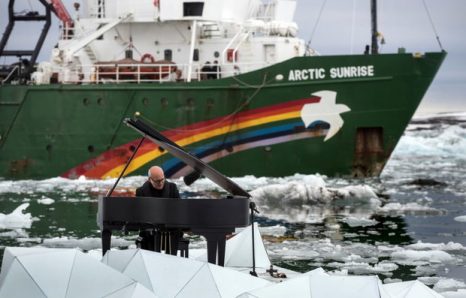
‘Big Green’ and environmental activists 2016’s biggest losers (Commentary)
The day after the presidential elections, Michael Brune, executive director of the Sierra Club, glumly called the Donald Trump victory “devastating for our climate and our future.” Well, yes, if you’re a climate-change alarmist who hates fossil fuels, you’re in for a bad four and maybe eight years. Greenpeace Executive Director Annie Leonard was even more apocalyptic, saying: “I never thought I’d have to write this. The election of Donald Trump as president has been devastating. … There’s no question, Donald Trump’s climate denial is staggering. He wants to shut down the EPA, ‘cancel’ the Paris Climate Agreement, stop funding clean energy research, and ‘drill, baby, drill.'” Ah, but if this is so crazy, why did he win? The short answer is that Americans went to the polls and rejected environmental extremism, among other things. The biggest loser on election night was America’s Big Green movement, dedicated to the anti-prosperity proposition that to save the planet from extinction we have de-industrialize the U.S. and throw millions and millions of our fellow citizens out of their jobs. Read the rest here 13:20:30
Footage of possible illegal fishing activity lost in embarrassing botch-up
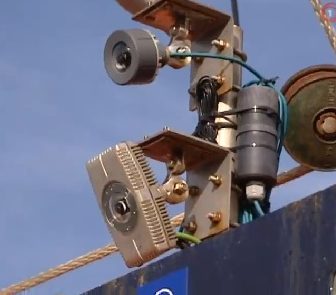 The Ministry of Primary Industry has admitted up to 80 per cent of camera footage has been lost during the first three months of their pilot programme. Flash new on board cameras were MPI’s big answer to cleaning up the fishing industry’s battered reputation. Trident Systems Chief Executive, David Middleton said Trident, “had a very high failure rate, we’ve replaced about 80% of the cameras that we initially put out”. Commercial Fisherman, Dave Moore said “all of the fishermen themselves would like that to be ironed out and maintain the integrity of the programme”. David Middleton says they’ve largely solved issues with water damage, power supply and transmitting footage by wifi. But now their new equipment is struggling with signal interference. Read the story here 08:51
The Ministry of Primary Industry has admitted up to 80 per cent of camera footage has been lost during the first three months of their pilot programme. Flash new on board cameras were MPI’s big answer to cleaning up the fishing industry’s battered reputation. Trident Systems Chief Executive, David Middleton said Trident, “had a very high failure rate, we’ve replaced about 80% of the cameras that we initially put out”. Commercial Fisherman, Dave Moore said “all of the fishermen themselves would like that to be ironed out and maintain the integrity of the programme”. David Middleton says they’ve largely solved issues with water damage, power supply and transmitting footage by wifi. But now their new equipment is struggling with signal interference. Read the story here 08:51
The election has enviro groups all worked up! – Reactions to Trump victory trickle in from seafood industry
 Seafood companies and industry groups have begun to issue statements and responses to the election of Donald Trump as president of the United States. Trump has said little about the seafood industry directly, but he has expressed favor for policies that reduce environmental barriers preventing the further development American industry, which may lead to changes in the management of U.S. fisheries. Trump has also taken a strong stand against free-trade agreements, and if he acts on pledges to scuttle the Trans-Pacific Partnership framework, add tariffs on Chinese imports and renegotiate or withdraw from the North America Free Trade Agreement, it will likely have an significant effect on the global seafood trade.,, Fred Krupp, the president of nonprofit advocacy group Environmental Defense Fund (EDF), posted his thoughts on the election in a blog post on EDF’s website. “The election of Donald Trump has profoundly altered the landscape in which environmentalists work. While environmental issues weren’t central to the campaign, President-elect Trump took positions during the campaign that were directly counter to ours — and contradicted by science,” Krupp wrote. “We are still assessing the challenges that lie ahead, but this much is clear: The next few years will bring some big fights and also some unpredictable fluidity.” World Wildlife Fund President and CEO Carter Roberts also issued a statement,,, Read the story here 13:53
Seafood companies and industry groups have begun to issue statements and responses to the election of Donald Trump as president of the United States. Trump has said little about the seafood industry directly, but he has expressed favor for policies that reduce environmental barriers preventing the further development American industry, which may lead to changes in the management of U.S. fisheries. Trump has also taken a strong stand against free-trade agreements, and if he acts on pledges to scuttle the Trans-Pacific Partnership framework, add tariffs on Chinese imports and renegotiate or withdraw from the North America Free Trade Agreement, it will likely have an significant effect on the global seafood trade.,, Fred Krupp, the president of nonprofit advocacy group Environmental Defense Fund (EDF), posted his thoughts on the election in a blog post on EDF’s website. “The election of Donald Trump has profoundly altered the landscape in which environmentalists work. While environmental issues weren’t central to the campaign, President-elect Trump took positions during the campaign that were directly counter to ours — and contradicted by science,” Krupp wrote. “We are still assessing the challenges that lie ahead, but this much is clear: The next few years will bring some big fights and also some unpredictable fluidity.” World Wildlife Fund President and CEO Carter Roberts also issued a statement,,, Read the story here 13:53






